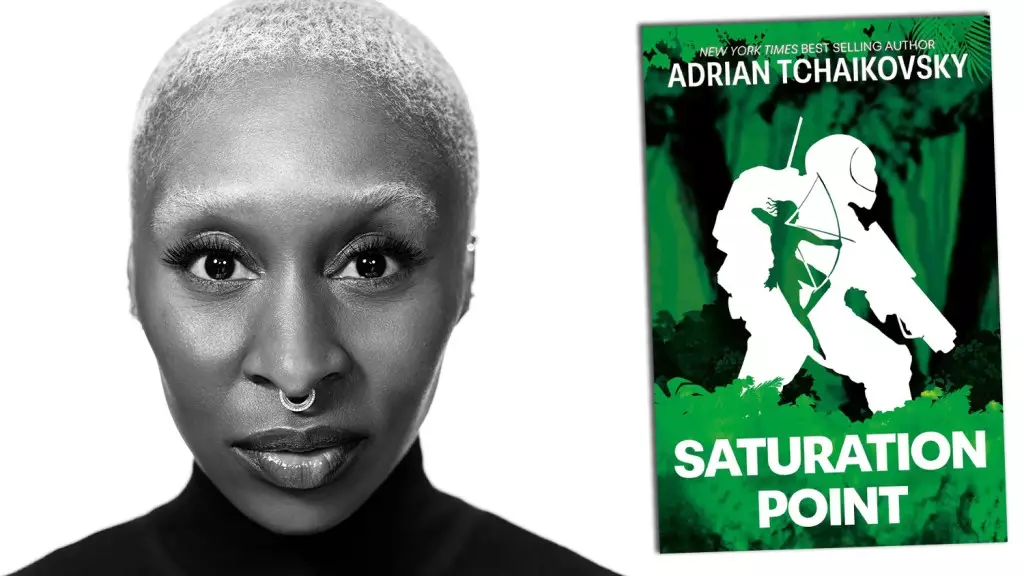Cynthia Erivo’s transition from acclaimed actress and singer to film producer signals a daring expansion of her creative footprint. With her production company Edith’s Daughter, Erivo is stepping decisively into genre filmmaking with the upcoming adaptation of Adrian Tchaikovsky’s science fiction thriller *Saturation Point*. This project is far from a standard mainstream endeavor—it explores a hostile equatorial rainforest, a setting fraught with danger and uncertainty, and delves into the unsettling idea that intelligence might not be uniquely human. Choosing such a story is a strong statement from Erivo, who has deliberately set out to spotlight narratives that amplify marginalized voices and probe unconventional perspectives.
Championing Diversity Amidst Sci-Fi Skepticism
Erivo’s commitment to representation is commendable, especially in a genre historically resistant to embracing diversity both in front of and behind the camera. Edith’s Daughter’s partnership with Platinum Dunes and Universal Pictures demonstrates a strategic alliance blending Erivo’s fresh social vision with the industry muscle of producers like Michael Bay and Brad Fuller. However, this collaboration also raises concerns: how much freedom will a socially conscious producer enjoy when paired with Bay, whose brand is synonymous with explosive, spectacle-driven cinema? Will the depth of Tchaikovsky’s novel and its thematic complexity be sacrificed for blockbuster thrills? The tension between meaningful storytelling and commercial viability is palpable, and only time will tell if this collaboration can strike the elusive balance.
Shifting Tides in Hollywood’s Production Landscape
Erivo’s emergence as a producer highlights a broader movement within Hollywood, where actors increasingly seek control over the content they create to ensure inclusivity and authenticity. Edith’s Daughter, launched with the explicit mission to normalize and celebrate underrepresented people, fits squarely into a contemporary collective reckoning with systemic inequities in the entertainment industry. Nevertheless, the mainstream appeal and the production’s reliance on Universal’s backing reveal a paradox: true innovation often requires compromise. In the intensely competitive market, even the most socially conscious projects risk dilution or reshaping to cater to prevailing tastes, especially in the sprawling sci-fi and action genres.
The Challenges of Translating Complex Science Fiction to Film
Adrian Tchaikovsky, a highly regarded author recognized by the Arthur C. Clarke and BSFA awards, is known for intricate world-building and intellectual rigor. His works challenge audiences with philosophical questions and imaginative narratives, elements that rarely transfer seamlessly to film. The adaptation task undertaken by Minnie Schedeen will demand not only fidelity to the source material’s spirit but also innovation in visual storytelling. Translating the oppressive and mysterious “Zone” into a cinematic experience capable of sustaining engagement while preserving thematic depth is no small feat. The project’s success—or failure—might hinge on how well this balance is maintained, a test both for the creative team and for the evolving appetite of sci-fi audiences.
A Spotlight on Erivo’s Expanding Career Trajectory
While Erivo’s performance as Elphaba in *Wicked* has garnered widespread acclaim and multiple Oscar nominations, her move into producing signals her ambition to shape narratives beyond acting. Her role along with Solome Williams overseeing all development at Edith’s Daughter underscores a proactive approach to reshaping Hollywood norms, not merely participating in them. Yet, it also reveals the complexities faced by talented artists navigating the corporate structures of major studios. The involvement of powerhouse producers and seasoned industry executives suggests a carefully negotiated path, but one that might dilute the radical intentions behind the company’s inception.
In sum, *Saturation Point* embodies both the promise and pitfalls of contemporary Hollywood’s convergence of diversity drives, genre ambivalence, and commercial imperatives. Erivo’s bold step into genre filmmaking is inspiring, yet fraught with challenges that reflect broader industry dynamics—making this an intriguing project to watch for cultural impact as much as box-office success.


Leave a Reply